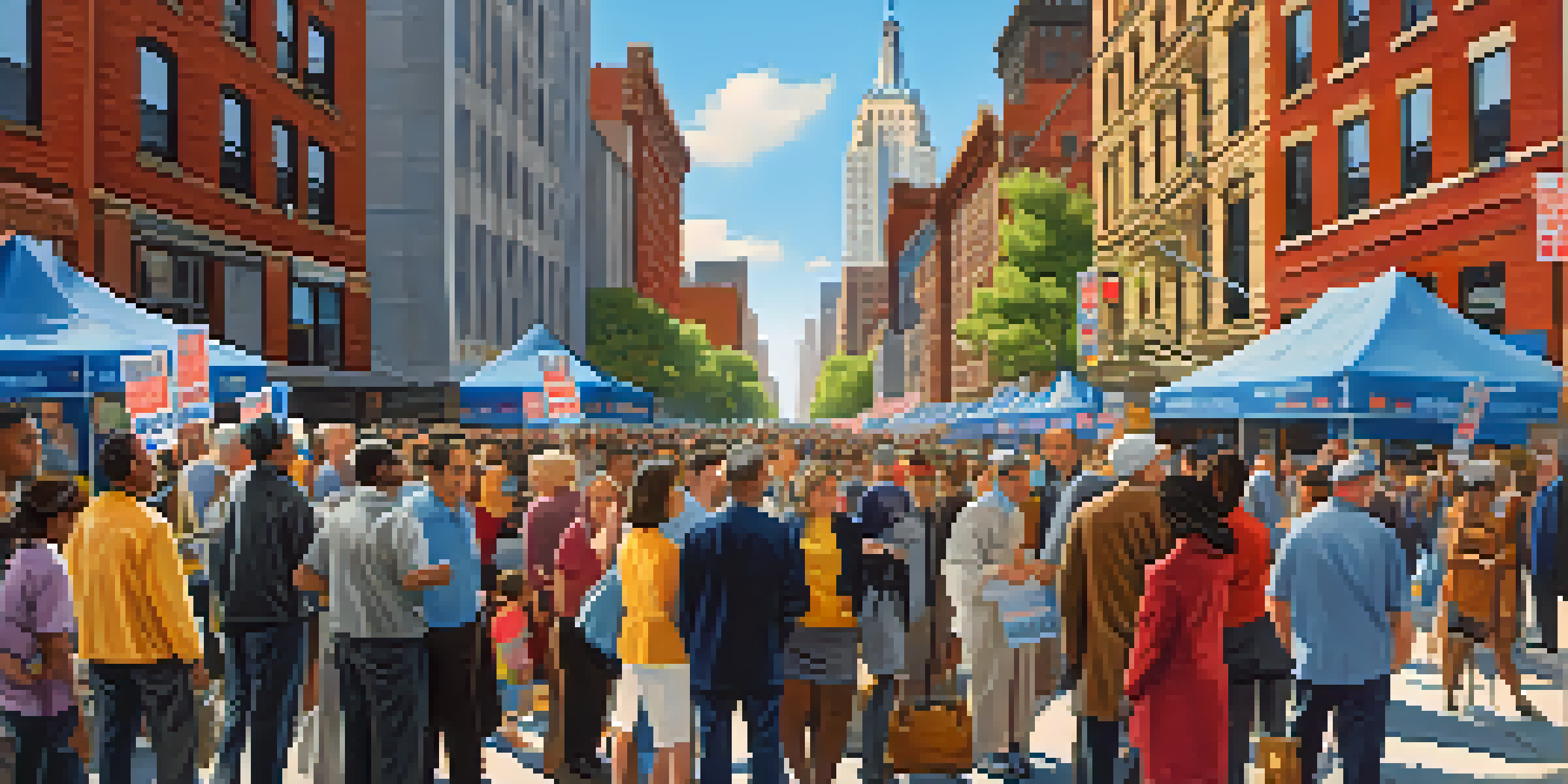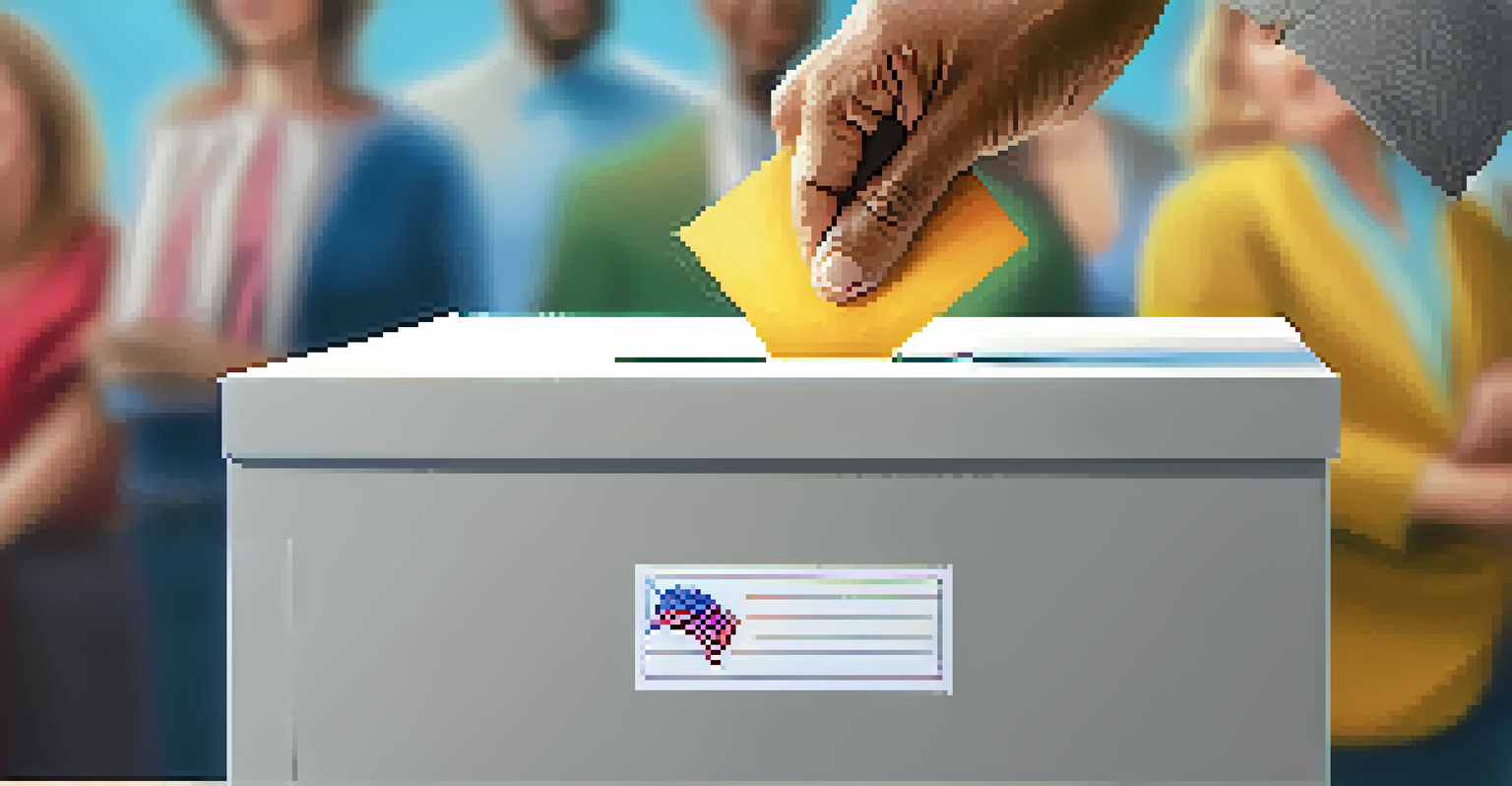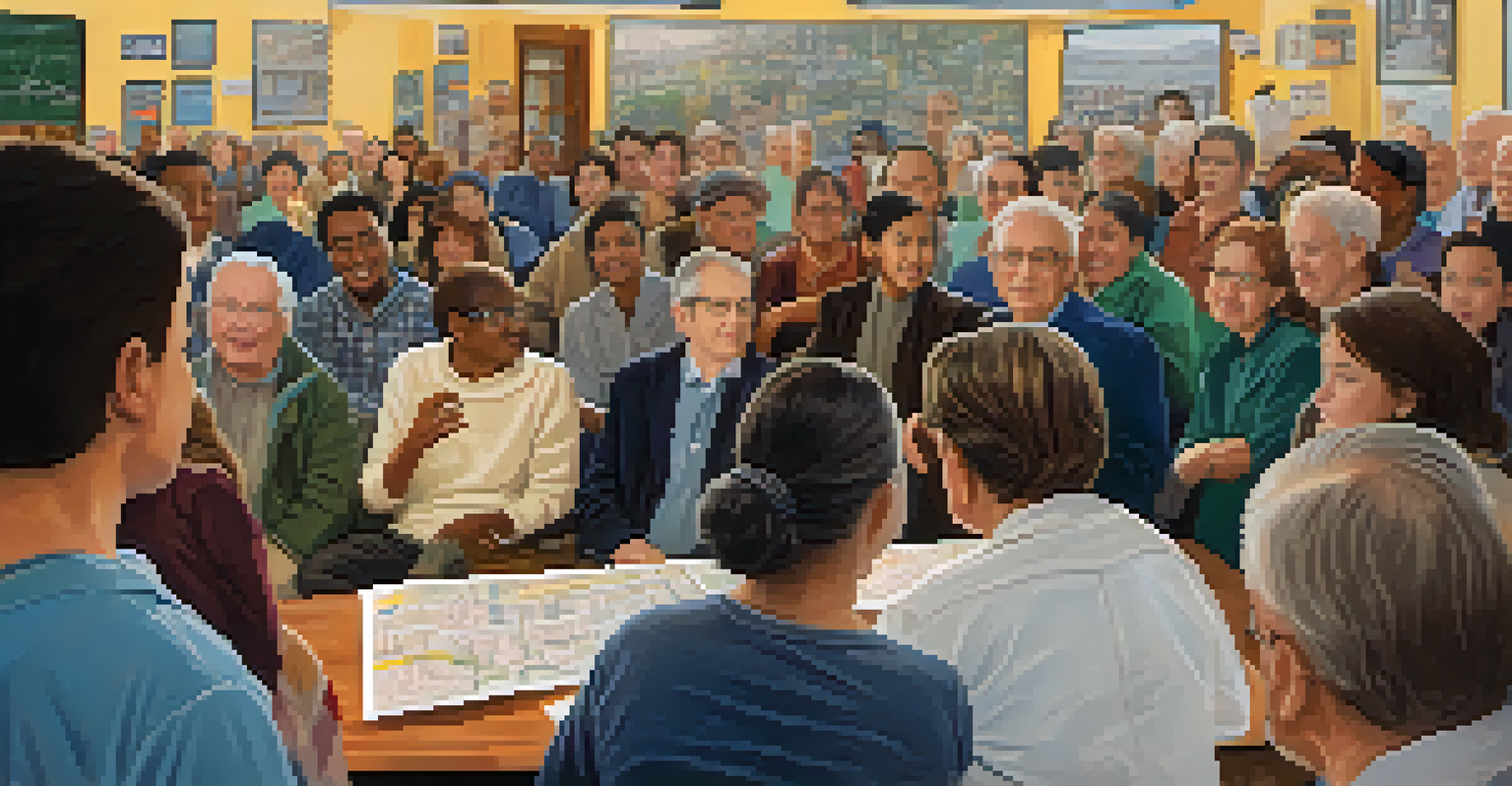The Impact of Local Elections on NYC's Political Landscape

Understanding the Importance of Local Elections in NYC
Local elections in New York City may not always grab headlines, but they play a crucial role in shaping governance. These elections determine who holds key positions, like city council members and borough presidents, impacting everyday life for millions. With the power to influence budgets, housing policies, and public safety, local officials are essential to the city's political ecosystem.
Elections are the cornerstone of our democracy. They empower citizens to voice their concerns and influence their government.
Consider this: while a presidential election can bring national attention, it's the local leaders who directly affect our neighborhoods. They have the authority to make decisions that resonate deeply with residents, from zoning laws to school funding. Therefore, understanding these elections is vital for anyone interested in the city’s future.
Moreover, local elections often serve as a barometer for broader political trends. Changes in voter turnout or party control at this level can signal shifts in public sentiment, influencing larger electoral battles. In NYC, where diversity is the norm, these elections reflect the city's ever-evolving demographics and priorities.
The Role of Voter Turnout in Shaping Outcomes
Voter turnout is a critical factor in local elections, often determining the outcome of races. In NYC, turnout rates for local elections tend to be lower than for federal ones, which can skew representation. When fewer people vote, it allows a small, often more motivated group to wield disproportionate influence over local governance.

For instance, in a city as vast and diverse as New York, a low turnout could mean that the voices of underrepresented communities are overshadowed. This can lead to policies that do not address the needs of all residents, highlighting the importance of mobilizing voters. Engaging citizens and encouraging participation can bridge this gap and lead to more equitable representation.
Local Elections Shape Daily Life
Local elections in NYC determine key positions that directly influence budgets, housing policies, and public safety for residents.
Moreover, high voter turnout can invigorate local races, bringing new issues to the forefront and ensuring that a wider array of perspectives is considered. It’s a reminder that every vote counts, especially in elections that directly affect our communities. When people engage, the political landscape becomes richer and more representative of the city's true character.
Diversity in NYC Politics: A Double-Edged Sword
New York City prides itself on being a melting pot, and this diversity is reflected in its political landscape. Local elections often showcase candidates from various backgrounds, which can lead to more inclusive policies. This representation is essential in a city where multiple cultures, languages, and experiences coexist.
The future depends on what you do today.
However, this diversity can also present challenges, particularly when it comes to unity among different groups. Competing interests can sometimes lead to fragmentation, making it difficult for elected officials to address the needs of all constituents effectively. Striking a balance between representation and collaboration is crucial for effective governance.
Additionally, the diversity of candidates can inspire new ideas and innovative solutions to long-standing issues. When people from different walks of life enter the political arena, they bring fresh perspectives that can challenge the status quo. This dynamic landscape encourages a continuous evolution of policies that reflect the city’s vibrant fabric.
The Influence of Local Elections on Policy Priorities
Local elections directly influence which issues become priorities for city officials. For example, the outcome of a council race can shift the focus on affordable housing, education reform, or public safety initiatives. These priorities are often shaped by the specific needs and demands of the communities that elected these officials.
When candidates campaign on particular issues, they signal to voters what they stand for. This creates a social contract where elected officials are expected to deliver on their promises. If they fail to address the concerns that got them elected, they risk losing their positions in the next election cycle, making accountability a key component of local politics.
Voter Turnout Affects Representation
Low voter turnout in local elections can lead to underrepresentation of diverse communities, skewing policies away from their needs.
Moreover, local elections can create ripple effects on state and national policies. When New Yorkers advocate for progressive stances on issues like climate change or healthcare, local leaders often lead the charge. Their successes or failures can influence larger political narratives, as the city often sets trends that other areas look to emulate.
Challenges Facing NYC's Election System
Despite its importance, NYC's election system faces numerous challenges that can hinder effective governance. From logistical issues like long lines at polling stations to concerns about voter disenfranchisement, these problems can deter participation. Addressing these barriers is crucial for ensuring that all voices are heard in local elections.
Furthermore, the complexity of the electoral process can confuse voters, particularly when it comes to understanding ballot initiatives or local propositions. Making the voting process more transparent and accessible can empower citizens and encourage higher turnout. Educational campaigns can play a vital role in demystifying the system and fostering engagement.
Additionally, the rise of misinformation can threaten the integrity of local elections. As misinformation spreads rapidly through social media, it becomes essential for voters to have access to accurate information. Ensuring that citizens are well-informed can help combat these challenges and strengthen the democratic process.
The Role of Media in Shaping Local Election Narratives
Media plays a significant role in shaping the narratives surrounding local elections in NYC. Coverage of candidates, issues, and voter concerns can influence public perception and engagement. When media outlets highlight specific topics, they can steer the conversation and impact what voters prioritize.
For instance, extensive media coverage of a particular candidate can elevate their visibility and sway undecided voters. Conversely, candidates who lack media attention may struggle to gain traction, regardless of their qualifications. This dynamic underscores the importance of equitable media representation in local political races.
Media Influences Election Narratives
Media coverage plays a crucial role in shaping public perception and engagement in local elections, impacting candidate visibility and voter priorities.
Moreover, social media has become a powerful tool for candidates to connect with voters directly. Platforms like Twitter and Instagram allow for real-time engagement and grassroots campaigning, which can be particularly effective in diverse communities. However, it also raises concerns about misinformation, making responsible media practices essential for a healthy democratic process.
Looking Ahead: The Future of Local Politics in NYC
As we look toward the future, the landscape of local politics in NYC is poised for change. Demographic shifts, emerging issues, and the ongoing effects of recent elections will shape the trajectory of governance. New challenges, such as climate change and economic inequality, will require innovative approaches and cooperative efforts among elected officials.
Engaging younger voters, who increasingly seek to influence local policies, will be key in this evolution. Their unique perspectives on social and environmental issues can drive meaningful change, fostering a political climate that reflects the aspirations of all New Yorkers. Building platforms that resonate with these voters can help ensure their voices are heard.

Ultimately, the impact of local elections on NYC's political landscape will continue to grow. As citizens become more involved and informed, they will play an integral role in shaping the future of their communities. The ongoing dialogue between voters and elected officials will be vital in creating a responsive and equitable city for all.